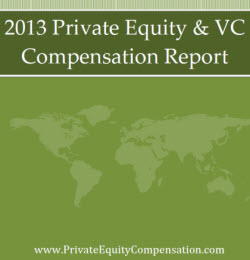Private equity firms playing the single family rental homes market are now seeking deals from homebuilders that are starved for cash and are in a hurry to lock in sales of newly built homes. This shift towards the homebuilders is a result of dwindling foreclosed properties, which in the past private equities snapped up for bargains from banks. According to data published by the Mortgage Bankers Association, the share of properties on which the lender filed a repossession claim fell to 3.55 percent at the end of the first quarter, the lowest level since 2008.
PE Firms Crowd Single Family Home Market
Private equity firms have crowded into the single family home market in the last two years looking for a way to bet on the recovery of the housing market. Blackstone Group for instance closed a $13.3 billion property fund last year and has bought over 24,000 houses over the past year. During that time, it focused most of its purchases in eight metropolitan areas most affected by the foreclosure crisis including Phoenix, Atlanta, Miami, Tampa, Nevada, Sacramento and Chicago. These large purchases have propelled private equity Blackstone Group to become the single biggest US investor in single-family rental homes.
Other well known private equity firms that are actively involved in the single family rental home market include Colony Capital, Oaktree Capital, KKR, GTIS Partners and Och-Ziff Capital Management. Private equities are used to buying big properties such as office buildings, shopping centers and malls but now many are considering entry into the single family rental home market. Lured by the double-digit spike in home values in the Atlanta metro area in the first quarter of 2013, Atlanta based PE firm Hibernian Pacific Holdings which till recently focused only on commercial real estate properties, entered the residential market this year. It recently bought 45 single family attached and detached residential properties in DeKalb County, GA from a private seller.
Lower Supply Of Foreclosed Properties A Concern
Paul Diggle, an analyst with Capital Economics Ltd says falling foreclosure rate is likely to hurt institutional investors whose residential business models depend on being able to snap up bargains. Private equity firm Landsmith LP disclosed that it specifically targets struggling, capital starved smaller operators to buy houses at discounts. In May, the PE firm bought for about $33 million 250 Houston area houses that were built last year. Landsmith intends to buy 4,000 new houses this year.
Blackstone spokesperson Eric Elder also disclosed that the private equity firm looks out for opportunistic purchases and cited the firm’s recent purchase of five Lennar homes at bargain prices in Florida’s Hillsborough County as opportunistic buys.
According to data provided by the US Commerce Department, 65 percent of Americans owned homes in the first quarter of 2013, the lowest home ownership rate in 17 years. The primary reason for the low home ownership rate despite prevailing low home prices and record low interest rates is the inability of potential buyers to get a mortgage. Potential buyers either don’t have money for down payment or lack high enough credit scores to secure mortgage. This data point is a small encouragement for private equity firms investing in single family homes as any economic recovery is likely to arrest the slide in home ownership rate.
PE Stake In Single Family Rentals Relatively Small
Despite the widespread acknowledgement that the entry of institutional investors and private equities helped fuel the home price appreciation in the last few quarters, the stake of PE Firms in the single family rentals space is still relatively small. BlackStone for example has disclosed intent to buy about 15,000 properties in 2013. This number is impressive in itself but only a tiny portion of the 600,000 properties individual investors purchased through financing in 2012.
From a job market perspective, the lower supply of foreclosed homes and private equity investors being forced to buy more new homes will be a new positive. Sam Khater, deputy chief economist with CoreLogic says new home sales have higher economic multipliers and local impact relative to existing home sales. He adds that every new home sale requires the equivalent of five full-time jobs for 12 months.


